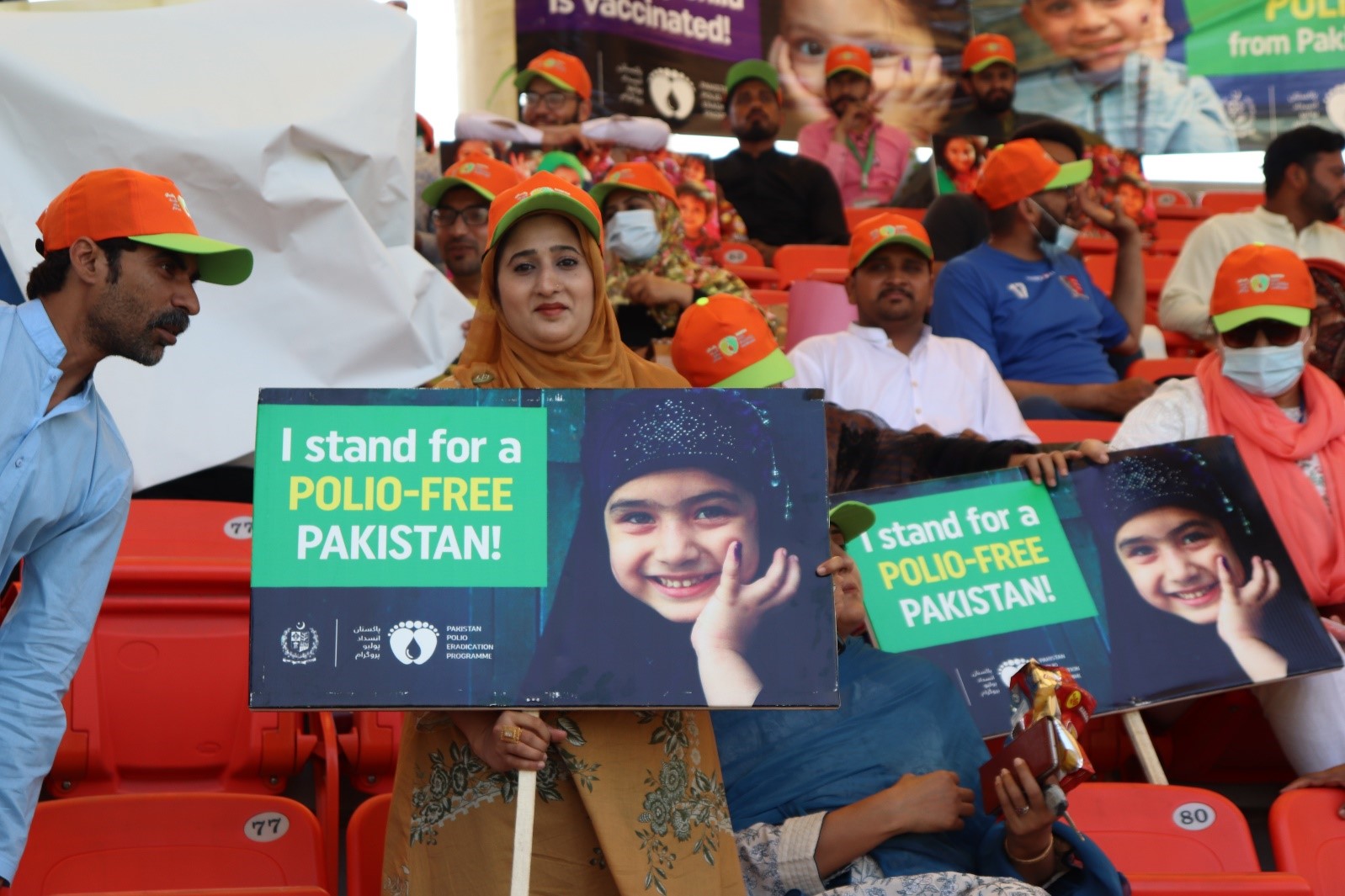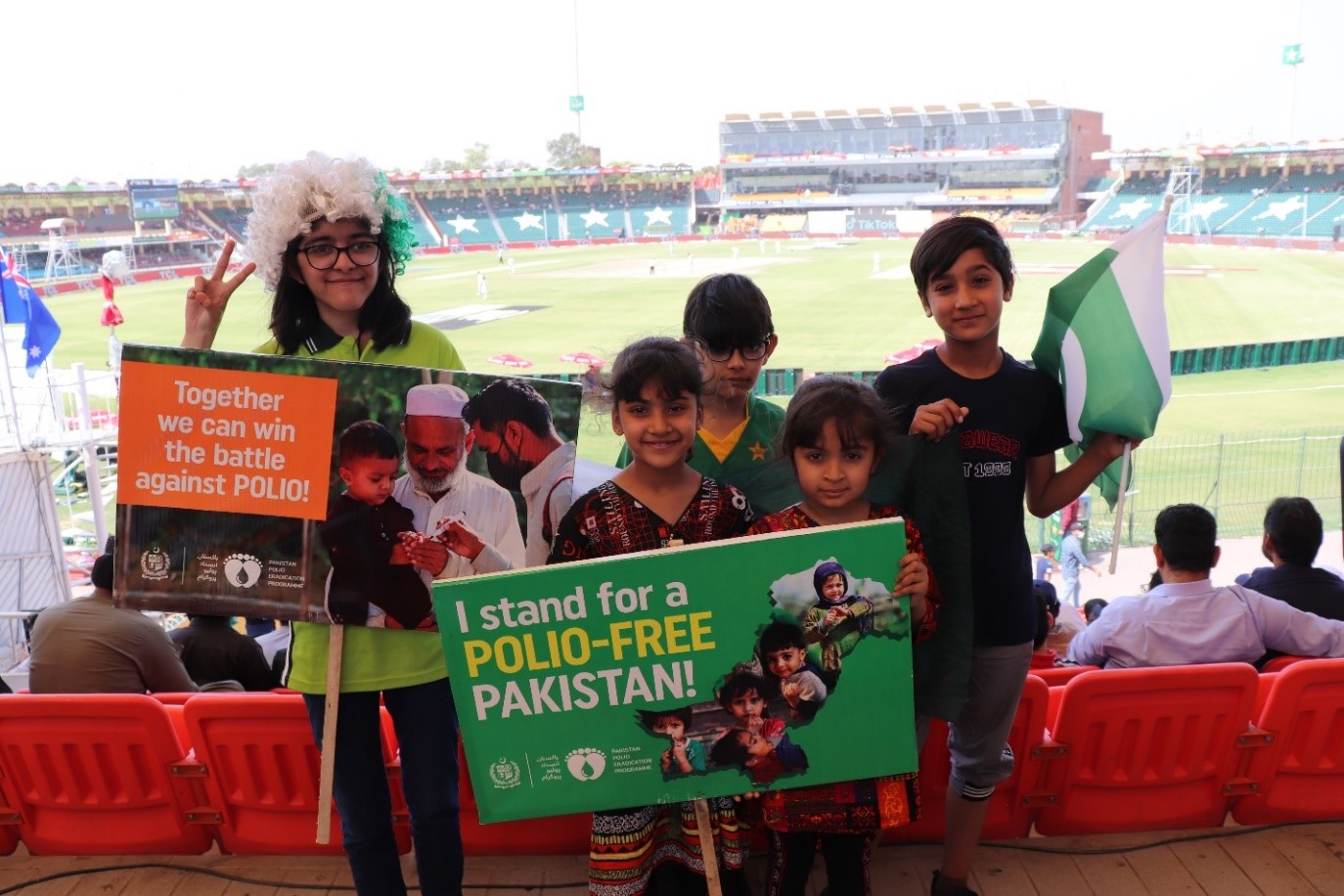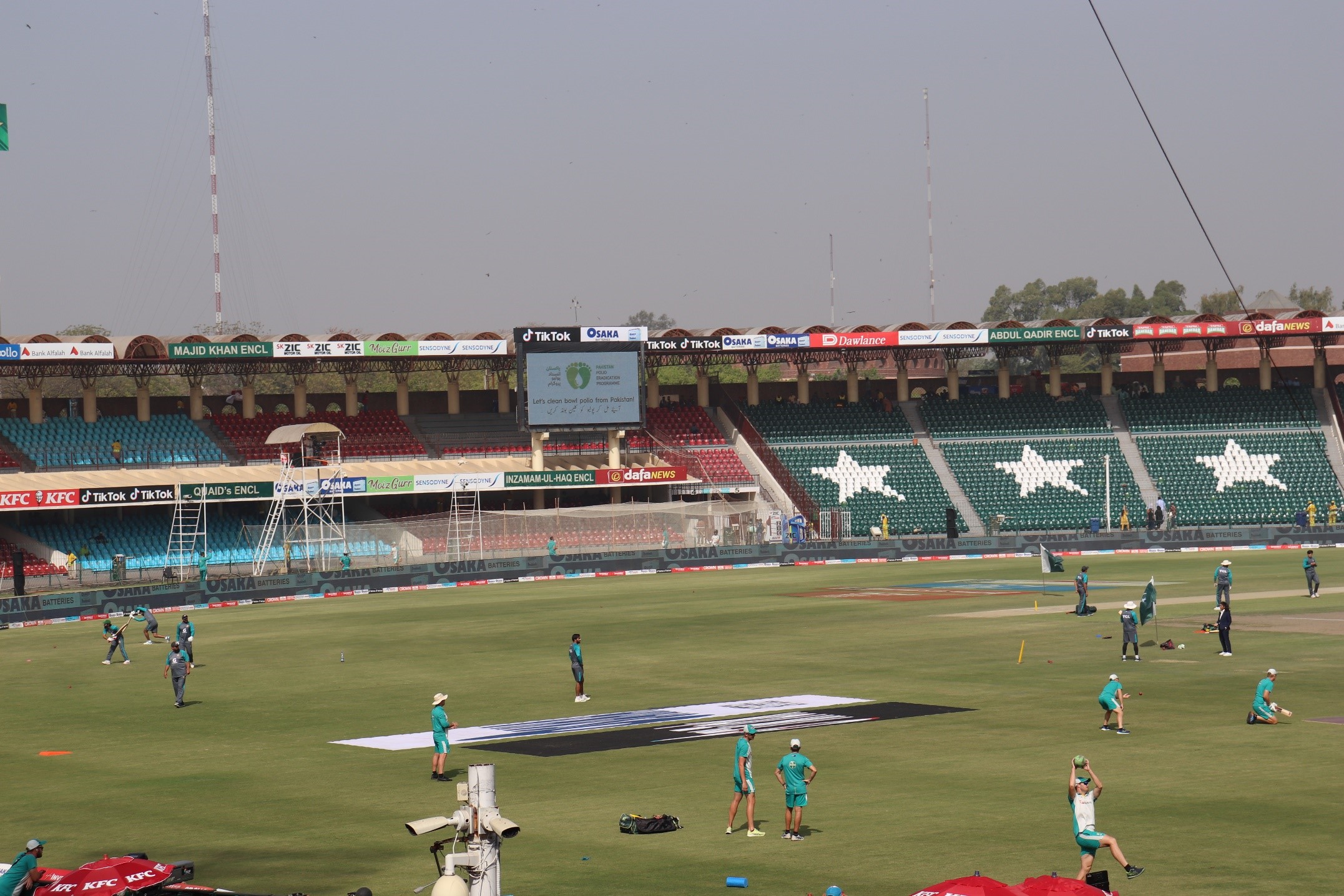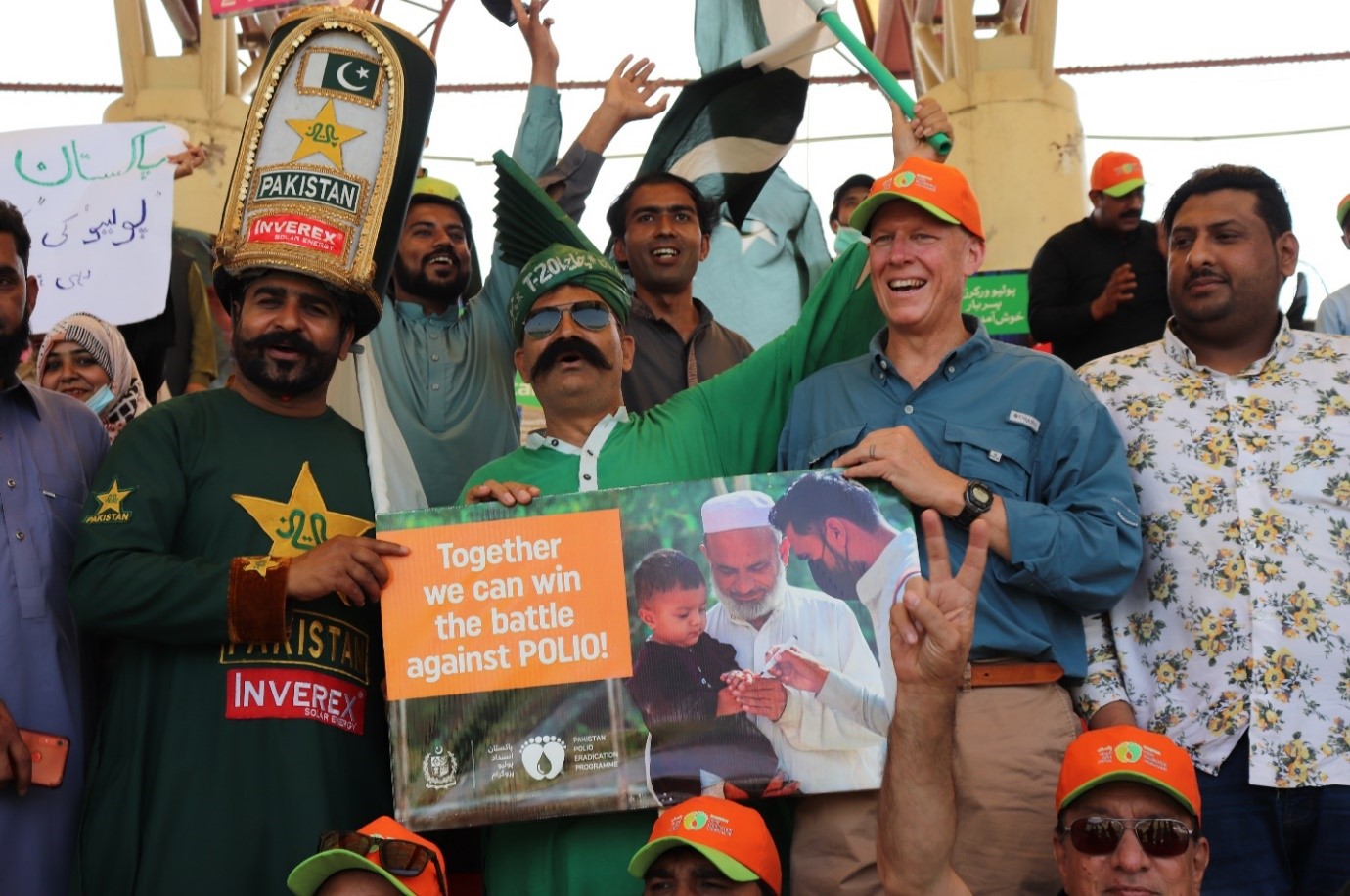Australian and Pakistani cricketers pay tribute to polio workers and helps raise awareness about vaccination in protecting children against polio
Arifa S Sharmin, Communication Specialist
It’s the second day of the international cricket test match between Pakistan and Australia, Polio front line workers, both women and men wearing bright orange and green caps are queuing up at the security gate of the Gaddafi stadium in Lahore. It promises to be yet another scintillating day of superb Australian batting and just as thrilling a display of skillful bowling and fielding by the Pakistanis.
I love cricket and am very excited to be here. This is my first time watching a live international cricket match in a stadium, says Ayesha, one of the Polio frontline workers, in the queue, her eyes sparkling with delight.But today is not just about cricket and nor is Ayesha just a fan.

Ayesha Zafar (left), Polio survivor and a frontline worker, stands at the Gaddafi stadium for the children of Pakistan. Photo: @UNICEF/Hasan/2022
The day’s game has been dedicated to raise awareness about polio and pay tribute to the heroic polio workers who go above and beyond in the fight to end polio from Pakistan. Ayesha is a polio survivor and one of the polio heroes who has dedicated her life to protect as many children as possible from this deadly crippling disease. In Pakistan, over three million polio workers like Ayesha walk from door-to-door during every national vaccination campaign, to reach over 43 million under five years old children with the polio vaccine.
In the Stadium: Spotlight on Polio Eradication
The match has already begun as Ayesha and her colleagues hurriedly take their seats in the stadium’s Imran Khan pavilion. The rest of the seats fill up quickly with similarly dressed polio workers in bright orange and green clothing.
The atmosphere inside the stadium is electric. Amidst the cricketing action on the ground and the cheers and whistles of thousands of fans, messages on polio pops up on the giant LED screens above the match scores. Children who’ve come to watch the match with their parents and relatives also join the polio workers, standing with placards and banners that speak about working together to end polio.

Faizan, Rafey, Fatima and Mahnoor, who have come to watch the match with their parents, join the polio workers in the stadium in promoting awareness about polio and the importance of vaccination. Photo: @UNICEF/ Hasan/2022
And then there’s an announcement by Robert Keys, one the match commentators, that resounds across the stadium, and to millions of homes across the world tuning in for the match on their television screens.
Today we have the team from the Polio eradication programme at the stadium, they have been instrumental in vaccinating children by going door to door to eradicate this disease. Sometimes, things are more important than a bat and ball and a pitch, and even a test series, no matter how long people have been waiting to see it. What a great initiative!
A Partnership for Children
This eventful polio awareness day hosted by the world’s two great cricketing teams was made possible with the support of the Pakistan Cricket Board (PCB), one of the most committed partners of the national polio eradication programme, as part of their corporate social responsibility. The PCB organized various awareness-raising activities during the day, including a shout-out by the players, promoting awareness messages, honoring polio workers and polio survivors and ensuring their free access to the cricket match during the Lahore test.
The entire nation is proud of our polio workers for their commitment and hard work despite challenges, in reaching every child across Pakistan with the polio vaccine," says Ramiz Raja, the Chairperson of the Pakistan Cricket Board. "The PCB is committed to raising awareness about polio and promoting a culture of vaccine acceptance. Together, we can bowl out polio from Pakistan.

The LED screen at the Gaddafi stadium displays Polio awareness messages before the match. Photo: @UNICEF/ Hasan/2022
Pakistan, one of the last two polio endemic countries along with Afghanistan, has crossed a year without a single child being paralyzed by the wild poliovirus. However, the poliovirus continues to be detected in the environment in certain parts of the country, and the polio eradication programme strives on relentlessly to vaccinate every last child against polio.
While we are at the brink of defeating polio, we have to plod on till there is no trace of the virus. In this final mile, the support of committed partners like the Pakistan Cricket Board is crucial in reaching parents and caregivers in every part of the country and motivating them to vaccinate their children. No child should ever be paralyzed by a disease that can easily be prevented by a very safe vaccine, says Dr. Shahzad Baig, Coordinator of Pakistan’s National Emergency Operations Center (NEOC) for Polio Eradication.
Hamish Young, UNICEF’s Polio Programme Chief in Pakistan, a cricketing fan himself, shares his reflections of the cricketing day for polio, and appreciates the support of PCB,
"Cricket is the most popular game in Pakistan, followed closely by millions of people. The Lahore test match provided a great opportunity to utilise the ‘power of the game’ in promoting the importance of vaccination in protecting children against polio among thousands of fans at the stadium and millions watching the test match on their screens globally."

Spectators join the Polio team at the stadium Photo: @UNICEF/ Hasan/2022
As the sun goes down and the match concludes for the day, Ayesha and her colleagues return home with renewed hope and motivation to continue their fight in the ‘final mile’ towards a polio free Pakistan.
